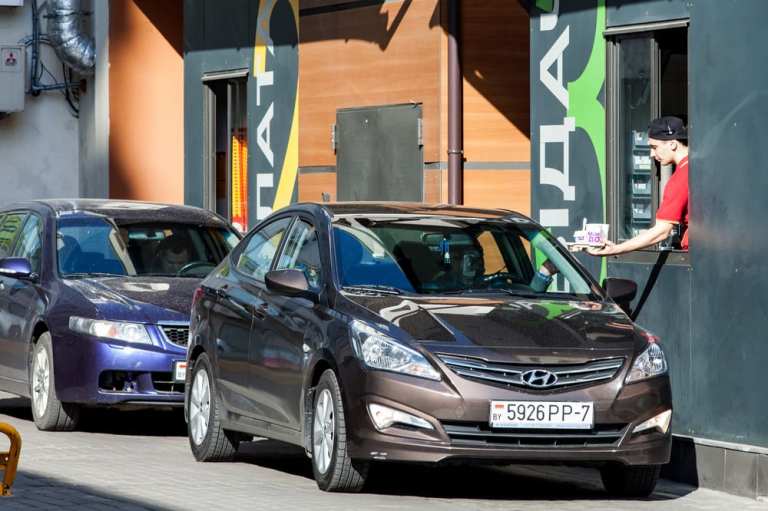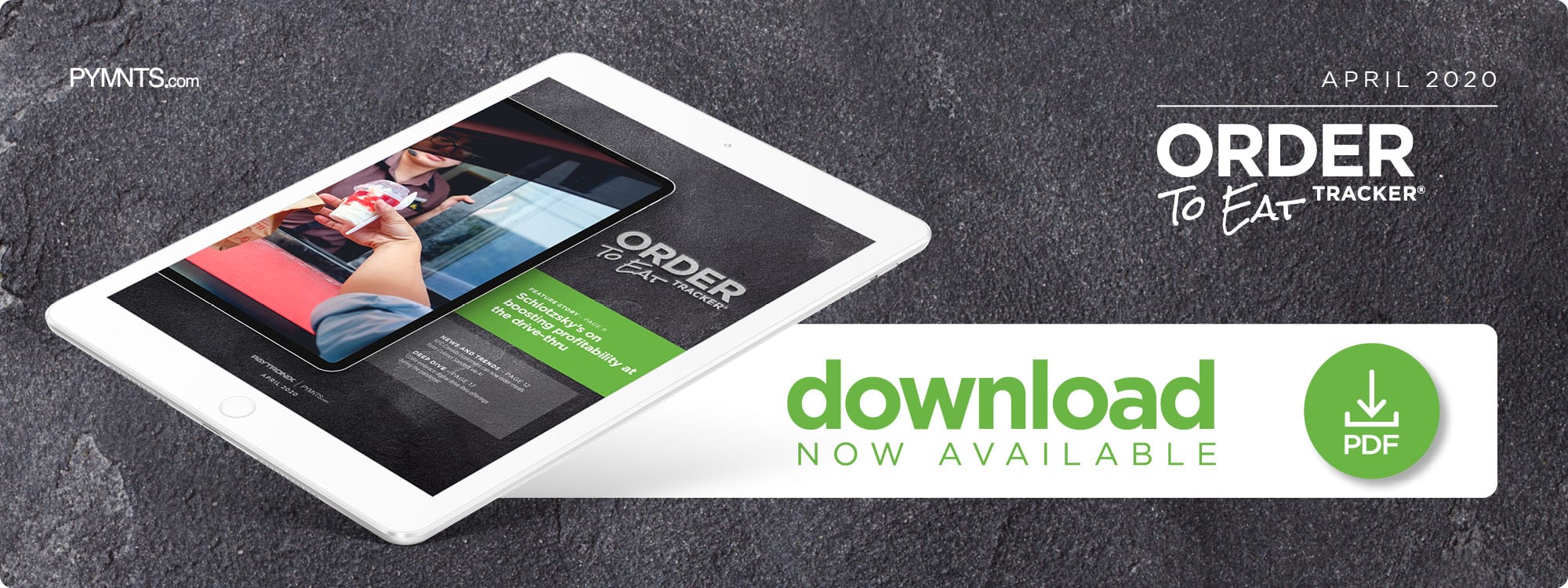How COVID-19 Is Accelerating Drive-Thru Upgrades

Quick-service restaurants (QSRs) competing in an already tight space have been under increasing pressure to differentiate their brands and enhance business operations at a time when industry revenues are suffering.
Major brands are shuttering their dine-in areas to promote social distancing, shifting their focuses to upgrading drive-thru operations and elevating their customer service approaches. Drive-thru pickup accounted for approximately 70 percent of QSRs’ sales totals in 2018, and that share is expected to hold steady or increase as more Americans stay at home. QSRs investing in their drive-thru operations stand to benefit now and in the future.
A recent study offered insights into consumers’ reactions when the coronavirus crisis began in March. It analyzed sales at eight fast food and fast casual brands across the U.S. — Burger King, Chick-fil-A, Chipotle, McDonald’s, Perkins Restaurant & Bakery, Popeyes, Starbucks and TGI Friday’s — finding that traffic held surprisingly steady and that some chains even saw year-over-year growth. Only TGI Friday’s and Perkins, both dine-in restaurants lacking drive-thrus, posted declines over the previous years.
Demand for drive-thru options coincides with an uptick in off-premise dining, including digital ordering and third-party delivery service. QSRs that did not offer such services before the COVID-19 crisis are now scrambling to provide no-contact options to ease customers’ concerns and even promote a sense of normalcy. Doing so could allow them to engage new customers and encourage loyalty during these uncertain times.
QSRs have recently experimented with several approaches to gain competitive edges, from modifying menus with healthier choices and tinkering with loyalty programs to modernizing their restaurant layouts. The COVID-19 pandemic is in consumers’ thoughts, yet companies can still personalize their services with digital offerings that limit personal contact to address customers’ concerns.
Drive-thru ordering is poised for a digital transformation, with numerous innovations emerging to promote faster ordering and more efficient kitchens. About 70 percent of QSR managers see these as the primary benefits of implementing new technologies, according to PYMNTS’ Restaurant Readiness Index, and most believe tools that support convenient order pickup and accuracy will bolster restaurants’ successes.
One new tool comes from U.S.-based artificial intelligence (AI) solutions provider Valyant AI, which recently introduced a conversational AI platform for QSRs that simplifies voice ordering at kiosks. The platform also updates display boards with messages encouraging patrons to make additional purchases and provides real-time insights on customer-employee interactions.
This conversational AI-based customer relationship management (CRM) software can help QSRs refine their ordering operations as well as reduce the risk of suggesting items customers may have rejected in the past. These operators can instead rely on the insights they have gained through customer interactions to tailor their offerings. Such suggestive selling occurs less than 55 percent of the time at drive-thrus that do not prioritize personalization, according to a 2019 study.
Adopting digital menu boards with vibrant images and graphics can also help QSRs capture customers’ attention as well as provide more readable entries than their static counterparts. Order confirmation systems can offer timely promotions and complimentary menu items, boosting loyalty while enabling staff to ensure orders are accurate.
COVID-19 is accelerating QSRs’ digital developments, and some experts believe the crisis could have lasting impacts on the food service landscape in multiple ways. The expansion of delivery offerings and pursuit of drive-thru renovations, as well as growth in digital revenues and loyalty program rollouts, are trends that may persist long after the pandemic ceases to be a threat.
Analysts predict QSR operators will post only modest sales increases from the recent uptick in drive-thru service, but the push to adopt digital offerings is expected to offer long-lasting value.
